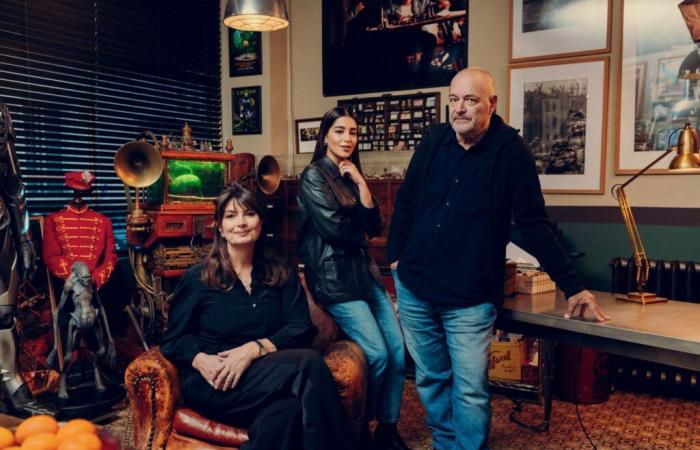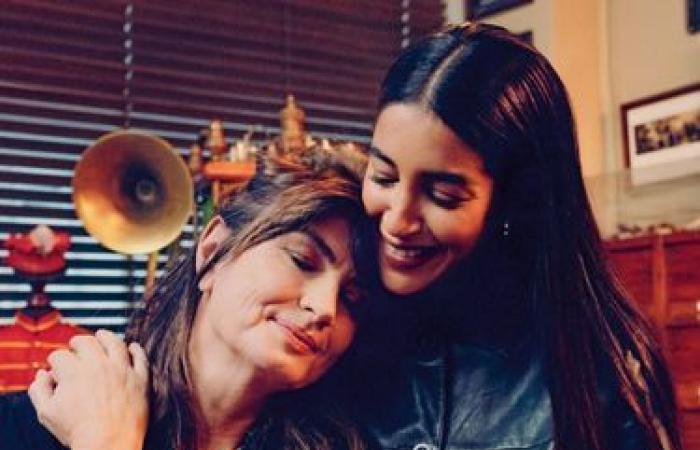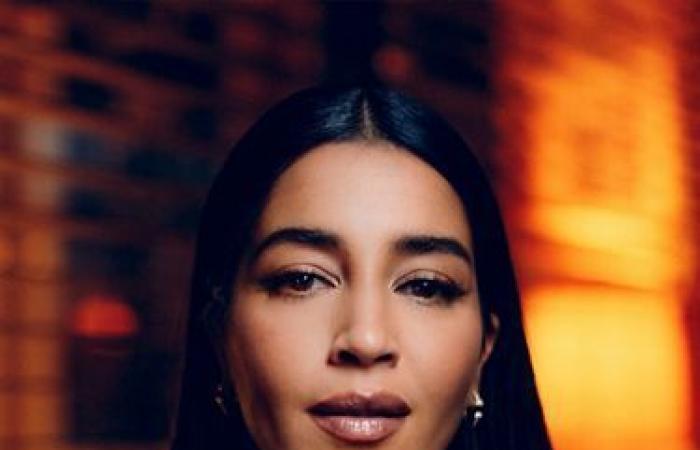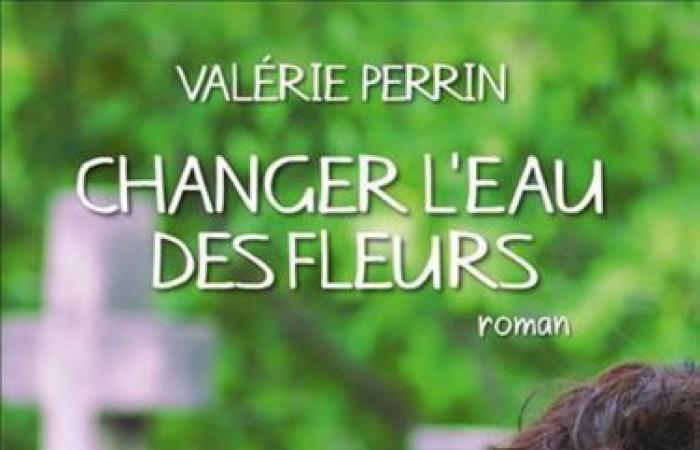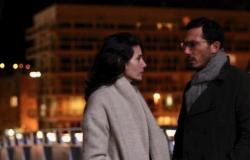They look at each other, hold hands for long minutes, almost cuddle, under the tender eye of their director and our photographer who doesn’t miss a beat. Valérie Perrin is moved. She finally meets Leïla Bekhti, the one who will be her Violet in the cinema, the heroine of her second novel, “Changer l’eau des fleurs” published in 2018. Huge bookstore success still today which tells the life of a babysitter cemetery bruised by existence but carried by the love of others. We are in Jean-Pierre Jeunet’s Parisian office, filled with favorite objects from his films and posters of Carné and Prévert’s films, a stone’s throw from the famous Café des Deux Moulins in Pigalle. When two universes that are finally so close finally meet…
Paris Match. When we know your respective worlds, we say to ourselves that it was obvious that Jean-Pierre would depict your novel, Valérie…
Valérie Perrin. There has always been an amazing, almost unreal connection between us. I remember meeting Jean-Pierre more than ten years ago at the Deauville American Film Festival. And I took the opportunity to ask him a question that was bothering me: why is Amélie Poulain’s mother from Gueugnon, in Burgundy, the town where I grew up? And there, he begins to describe the streets to me, telling me that he spent every summer there with his grandmother when he was a child…
Jean-Pierre Jeunet. Valérie even went so far as to photograph the little road where I rode my bike as a child!
The rest after this ad
V.P. It was totally improbable. But ultimately not that much. Our universes are extremely close. “A Long Engagement Sunday” greatly influenced me in my work, particularly for my first novel, “The Forgotten of Sunday”. I have always had two favorite filmmakers: Claude Lelouch and Jean-Pierre Jeunet. They inspired me, long before I met them.
J.-PJ Then you sent me “Change the Water of Flowers” when it came out…
Literature allows the imagination but cinema gives flesh
Jean-Pierre Jeunet
And you, Leïla, have also admired Valérie and Jean-Pierre for a long time…
Leila Bekhti. Whether I am a spectator or a reader, I have always loved fictional worlds. When I read the book for the first time, I said to myself, it’s so beautiful… There is nothing more beautiful than talking about life among the dead. I was carried by Valérie’s poetry. As I had been by that of Jean-Pierre’s films. So, I’ll let you imagine my reaction when they offered me the role of Violette…
V.P. Leïla has a huge heart in her eyes…
“Changing the Water of Flowers” is a sort of kaleidoscope of very different stories, with a taste for detail. How to concentrate all this in a film?
J.-PJ It is obvious that we are forced to make choices in these almost 600 pages. On the other hand, I was very careful to keep lots of little details which serve no purpose in the story, but which are the soul of the book.
Which ones?
J.-PJ The funeral of the showman, when Violette plays the ghost on her bike, and also this whole chapter where you decide to make a list. There are lots of elements like that which are not essential but which for me make up the DNA of Valérie’s novel.
V.P. Today, when I have questions about my book, I call Jean-Pierre. He knows him better than me.
L.B. Jean-Pierre knows how to film stories like no one else. He takes you on board. He made me dream. I love these directors who leave a mark on the audience. And he left me a lot. In this film, we are going to look for emotion like in “A Long Engagement Sunday”. His characters are poetic, in a certain madness, they are larger than life and at the same time, they bring us back to life.
Valérie Perrin and Jean-Pierre Jeunet.
© Dorian Fool
How can we ensure that cinema does not distort the very essence of a novel when it will inevitably do something else with it?
J.-PJ A very simple thing: we will lose in story but gain in visuals. Literature allows the imagination but cinema gives flesh. An actress with tears in her eyes, a character with his violence… The imagination becomes palpable.
L.B. When I read a novel, I try to detach myself. I loved Valérie’s book, obviously without ever thinking that I could one day play Violette. I think the strength of the film will be that of the book. To be immersed in this sweetness, this madness…
Valérie and Jean-Pierre, you have in common an offbeat poetry, a certain singularity and a taste for the unreal, for the fantastic…
V.P. It’s a way of seeing life, full of poetry.
J.-PJ But this taste that we share must stick to the project. For this film, there will be no fantasy of “Amélie”, no shot of a beating heart, because that would be too much. But there are elements that already excite me before I shoot them. When Valérie writes that death is like a dog slaloming between our legs, ready to bite us at any moment, I immediately visualize how I am going to put this into images…
V.P. Sometimes, Jean-Pierre tells me that he wonders if I haven’t come to steal ideas from his computer to write my books…
J.-PJ It’s beautiful, encounters like this.
Valérie Perrin and Leïla Bekhti.
Paris Match
/
© Dorian Prost
How do you explain this astonishing bond that brings you together?
J.-PJ There are lots of coincidences, little things we have in common. Gueugnon first. And then this project. You should know that Valérie had sold the rights to the book to an Italian production company which offered me to direct the film. It’s still incredible because I already knew that Valérie wanted me to do it.
With its flashbacks, its freeze frames, its soundtrack, the novel is written almost like a film script, right?
J.-PJ To adapt a story, whatever it may be, you must first love the medium. If it bothers me, I can’t do it. Afterwards, I always naturally knew how to cut a story for the cinema. Others know how to draw but for me, I just need to close my eyes to visualize a scene. And while working on this scenario, I realized that I had to calm down, that I wouldn’t necessarily need to put the camera on the ceiling to create a beautiful cinema effect. It has to be kept simple and sober. My inspiration for this film came from the 1957 Russian film, “When the Storks Fly”, by Mikhail Kalatozov.
V.P. Amazing, you never told me that. It’s Claude’s favorite film…
There is nothing more beautiful than talking about life among the dead
Leila Bekhti
Each reader has an idea of Violette, the central character of the novel, and each of us has a very different incarnation of her. How was Leïla Bekhti chosen?
V.P. I absolutely wanted Jean-Pierre to really be in love with his actress. I felt that, as soon as he met Leila, he was charmed.
J.-PJ There always needs to be a click. And I came across Kyan Khojandi’s show “Hot Ones”, where he receives personalities. He asks Leila, who said she could shed tears on command, to recite a lasagna recipe to him while crying. Which she does amazingly. I was like, “Okay, that’s her.”
V.P. What’s complicated is that Violette is international now. In the sixty countries where the book has been released, readers have created their own Violet. He’s a character apart. The only one who has never left me since writing the book. Normally, I don’t need to mourn them when I end a story. I love them, I think about them but it’s over. Violette is always there, like a ghost, a little guardian angel. It’s no secret that I love Audrey Tautou. I wrote to her to tell her, knowing full well that she would not make the film. I told him how much this little brown twig had inspired all my characters in my novel. But there is always a difference between fantasy and real life, and I love what Leïla offers. It’s obvious. She exudes all this goodness, the beauty, the subtlety of a Violet, and I am overjoyed.
L.B. He is a character full of light, even for me who does not have a peaceful relationship with death. She is timeless, resilient. I like these super unique characters who at the same time speak to you. There is nothing more beautiful and more poetic than seeking life through death.
Sometimes, Jean-Pierre wonders if I haven’t come to steal ideas from his computer
Valérie Perrin
How was this character born, a cemetery guardian, one of whose tasks is to tell about the funerals to those who could not attend?
V.P. I wrote it because I wasn’t able to attend my grandmother’s funeral, because I was in India on the set of “Un + une”, by Claude. I suffered from it and thought it would have been great if someone could have told me what happened that day. And many anecdotes on this subject are true, told to me by the priest of Gueugnon. Finally, this story is also an investigation that we will not tell here for those who have not read the book. It is a quest for truth for this abandoned woman who lost her daughter, but who is still resilient, a term used everywhere today. Violette is a survivor. And I believe that this character spoke to a lot of women. Every day, I receive mail dealing with grief, life changes, burn-out. And she is referred to as someone who exists. It’s disturbing.
J.-PJ I had experienced the same thing with Amélie. A kind of identification that goes beyond the normal. This is why I asked Guillaume Laurant, who had written “Amélie Poulain” with me, to take a look at the script. Without having read the novel. To have a fresh perspective.
The other central character of the novel is the cemetery of which Violette is the benevolent guardian. It’s a place that is both confusing, sometimes painfully perceived, but ultimately very cinematic…
J.-PJ I understood it when I went on a scouting trip to the south of France. We ultimately discover touching, sometimes funny things.
V.P. Words of love, photos, portraits…
J.-PJ And I didn’t see death there, ultimately…
V.P. The novel reconciled many people with this place…
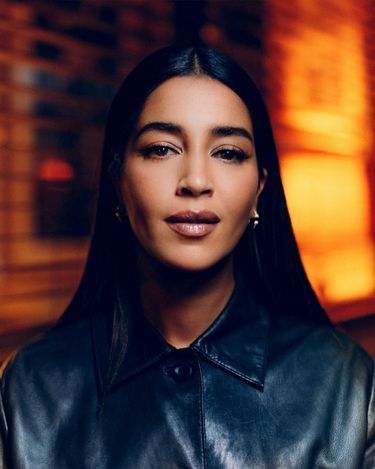
Leila Bekhti
Paris Match
/
© Dorian Prost
How do you work together?
V.P. We call each other, Jean-Pierre asks me questions, asks me for explanations. I read the different versions of the adaptation and I am very happy.
J.-PJ What’s funny is that Valérie lives with a man who loves life while I’m more of a misanthrope, always seeing the glass half empty.
What does Claude Lelouch think of the project?
V.P. For him, the choice of Jean-Pierre is obvious, it is the best possible choice. According to him, he was made for the film. Claude considers that there is a before and after “Amélie Poulain” in cinema, that Jean-Pierre brought something new. That’s why I’m delighted with what’s happening. I wrote the book and Jean-Pierre is going to paint it.
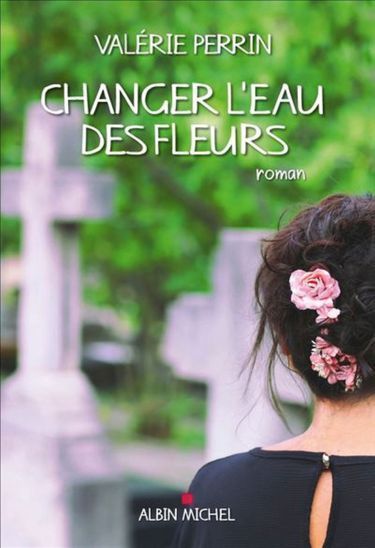
“Changing the water of flowers”, by Valérie Perrin, ed. Albin Michel. The film is a co-production of Palomar and 24 25 Films (Mediawan group), co-produced and distributed by StudioCanal, with the support of Canal+ and Netflix. Filming in May 2025.
© DR

